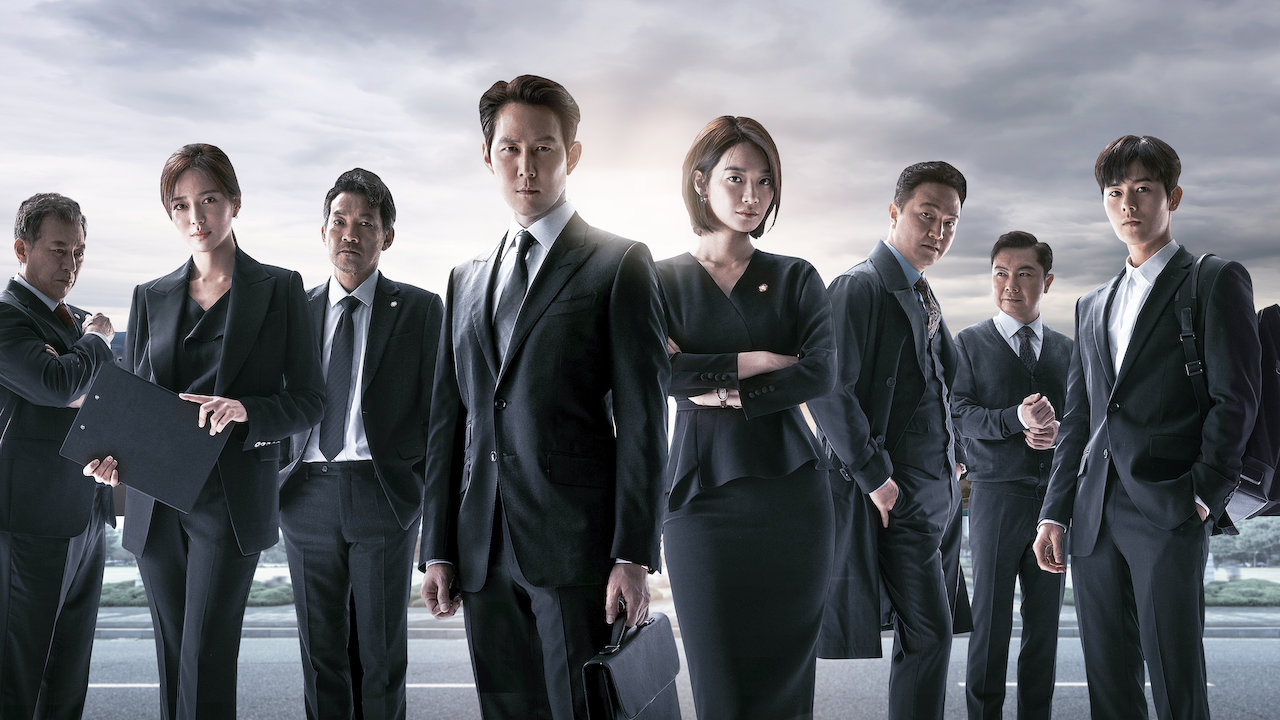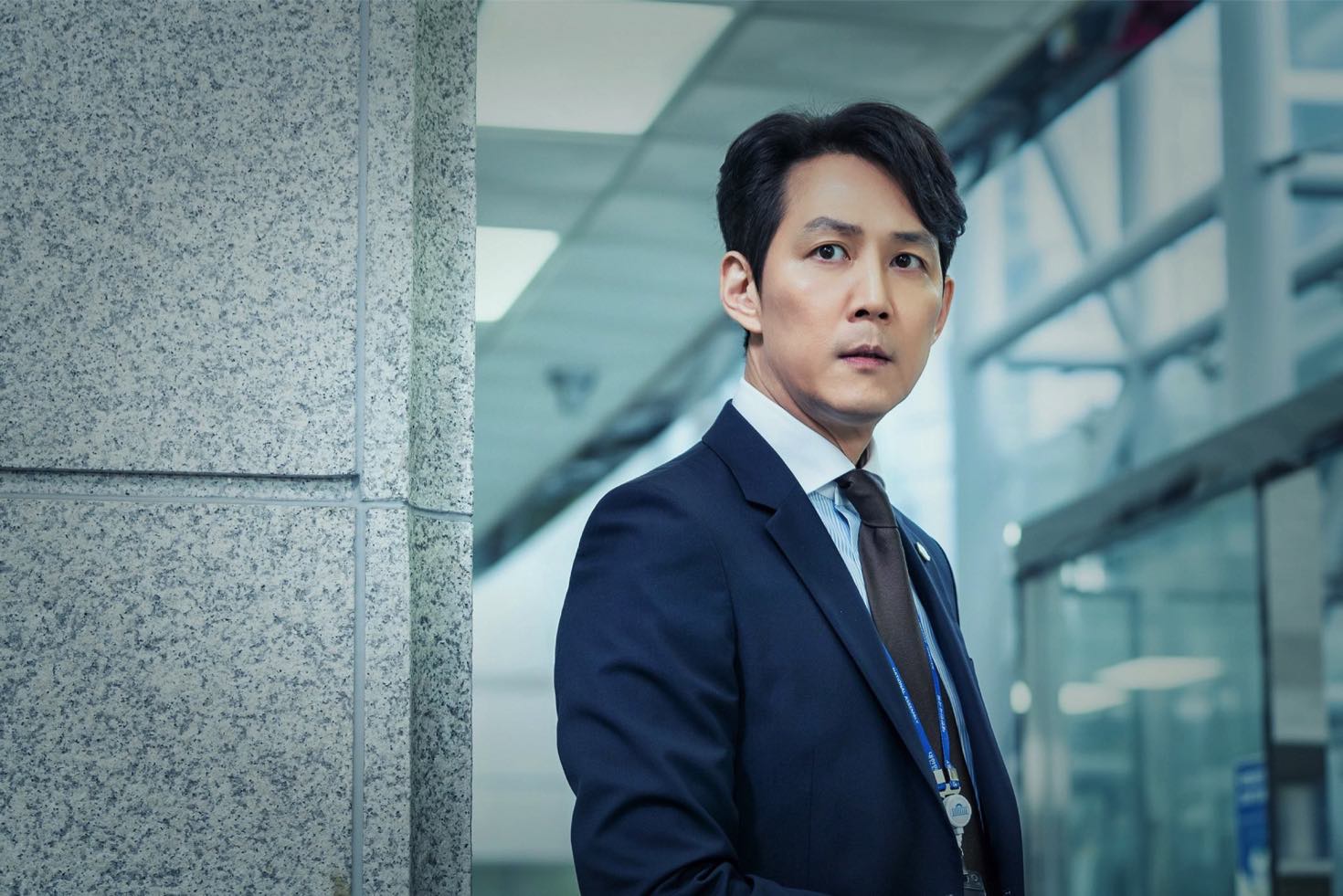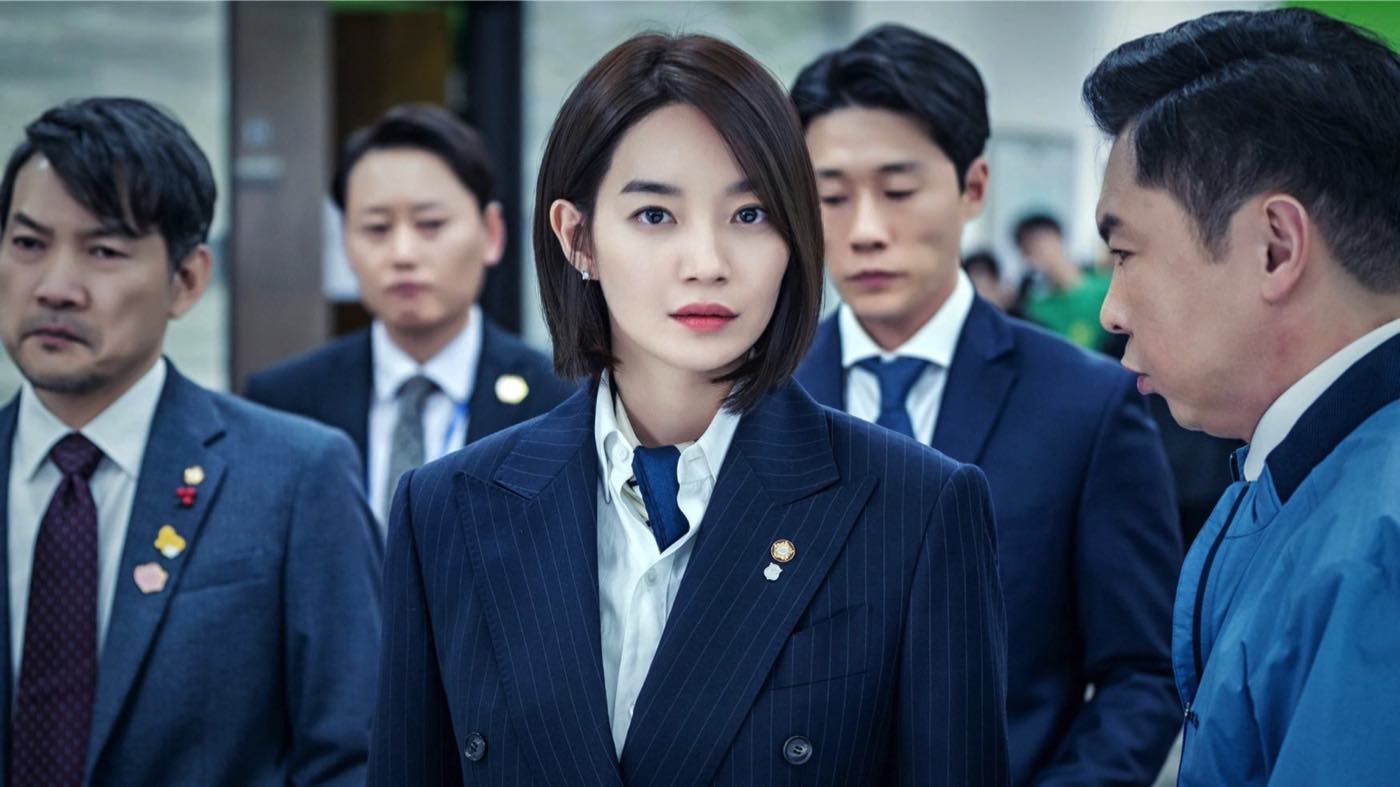
Numerous Korean dramas focus on the executive (ex. The President, Fifth Republic) and judicial (every K-drama with a prosecutor) branches of the Republic of Korea’s government. Now, the JTBC series Chief of Staff provides some K-drama representation for South Korea’s legislative branch.
Starring veteran actors Lee Jung-jae (Along with the Gods) and Shin Min-ah (A Bittersweet Life, Oh My Venus), Chief of Staff centers on the behind-the-scenes politicking of South Korea’s National Assembly. The drama feels reminiscent of renowned American series The West Wing, but in ways that highlight deficiencies rather than strengths.
A Fiction of Factions

Chief of Staff derives its title from its protagonist Jang Tae-joon (Lee Jung-jae). Jang is the Chief of Staff for a National Assemblyman named Song Hee-seob, a senior member of the (fictional) Daehan Party. A former police officer, Jang maintains a reputation as a formidable operator who manufactures political miracles for his boss.
However, Jang doesn’t want to remain an aide forever. He’s made a deal with Song: if Jang can help Song become Minister of Justice, Song will endorse Jang to fill his vacated seat.
Meanwhile, Jang also conducts a clandestine relationship with first-term Assemblywoman Kang Sun-young (Shin Min-ah), who belongs to a rival faction of the Daehan Party. As a former TV anchor elected through party-list proportional representation (in South Korea, party lists need to be 50% female), Kang wants to prove herself yet can’t stray far from the party line.
Glacial Politics
Compared with most K-dramas and political shows, Chief of Staff has a pretty slow start. We first meet Jang while he’s giving a rather uninspiring interview for a magazine profile; he speaks vaguely about how his job involves “turning ideals into reality.” Compare this to City Hunter kicking off with the Rangoon bombing, or House of Cards’ infamous dog-killing opening.
The series also takes a while to articulate its characters’ motivations. In the first few episodes, we hear vague mentions about Jang’s past as a police officer and Kang’s past as a TV anchor, but nothing that helps us learn why they desire political power. In fact, none of the protagonists actually seem that thirsty for power; they seem to just want higher offices because it’s the logical next step up the ladder.
It’s not until episode four that Chief of Staff starts getting juicy. After burning three episodes on haphazard character development, the show finally creates a set of truly compelling obstacles and conflicts for its protagonists to overcome. That’s a pretty long time to wait, unless you’re a diehard fan of the lead actors or a huge political junkie.
West Wing on the Han River?

In both premise and implementation, Chief of Staff feels more like a Korea-fied, legislative branch version of The West Wing—not House of Cards. Like The West Wing, Chief of Staff focuses primarily on the minutiae of politics, as opposed to dark and dramatic machinations. The K-drama’s scenes mostly take place in bland legislative offices and committee meetings, with only an occasional shot of the National Assembly floor. There are plenty of “walk and talks,” and Chief of Staff relies much more heavily on dialog than your traditional K-drama—both classic West Wing techniques.
While it’s admirable to see Asian shows drawing from The West Wing’s illustrious tradition, these parallels only highlight Chief of Staff’s flaws.
Because the drama has slow initial pacing and uninspiring characters, its focus on dialog and political minutiae becomes ponderous rather than engaging. Perhaps the dialog is actually quite poetic for those who understand Korean, but international audiences—especially those unfamiliar with concepts like party list proportional representation—will get bored quickly.
Focusing on dialog and operational details worked for The West Wing because its protagonists seemed impeccably noble. However, Chief of Staff’s underdeveloped protagonists don’t carry such an aura of uprightness. In fact, most of them exist in a vague purgatory where they’re 80% Josiah Bartlet but, oddly, also 20% Frank Underwood—neither noble nor ruthless enough.
For example, Jang never does anything illegal or even unethical to help his boss. At the same time, everyone around him still calls him ruthless, and he never articulates any strong moral stances to counter that perception. Jang feels like a colorless bureaucrat… simply doing things just because they need to be done. Bureaucracy, suffice to say, is not particularly entertaining.
Lost Political Potential
Chief of Staff seems like a drama that had a lot of potential—one that drew clear inspiration from strong international precedents like The West Wing. The show could’ve subverted many K-drama tropes and provided an educational yet accessible look at the inner workings of South Korea’s government. Instead, its plodding initial pace and muddled character development thwart those possibilities.
Maybe political junkies who want to see the inner workings of Korea’s legislature will find value from the series. But for something that’s supposed to be a drama, Chief of Staff feels surprisingly undramatic—and that’s a pity.
• • •
Chief of Staff is currently streaming on Netflix worldwide. This review was based on the first four episodes of the show.
